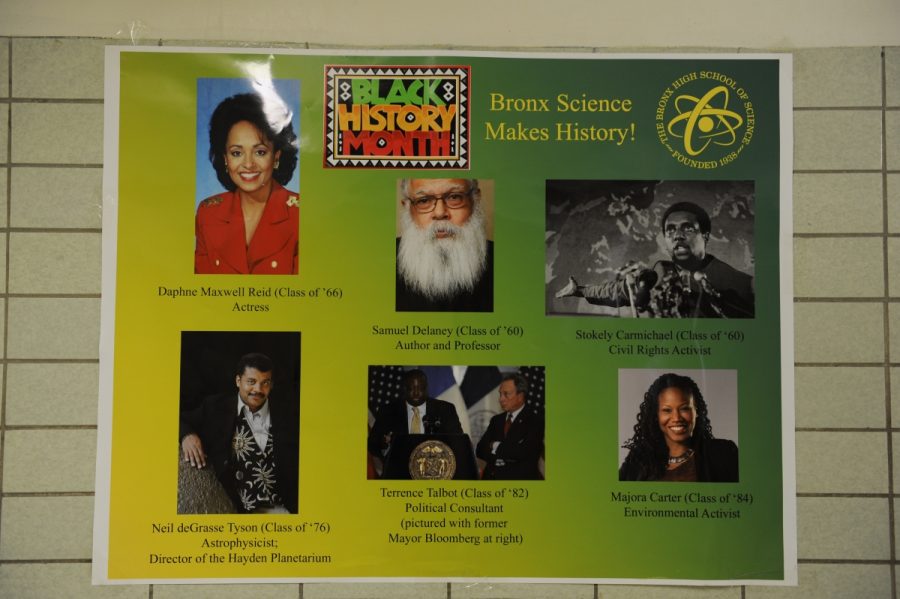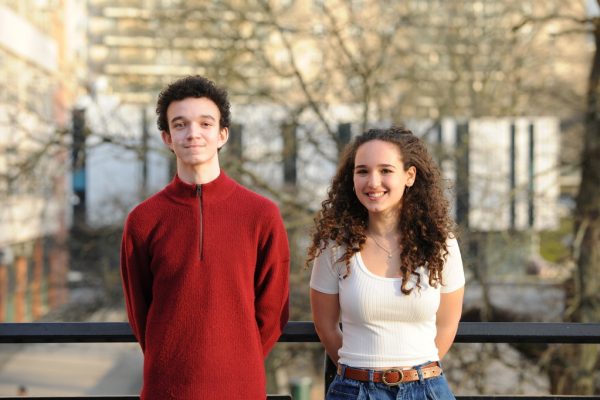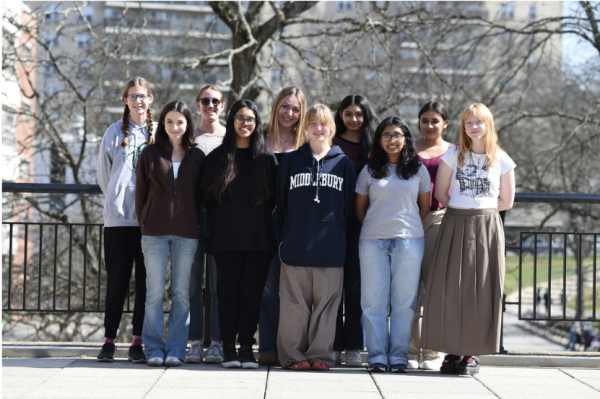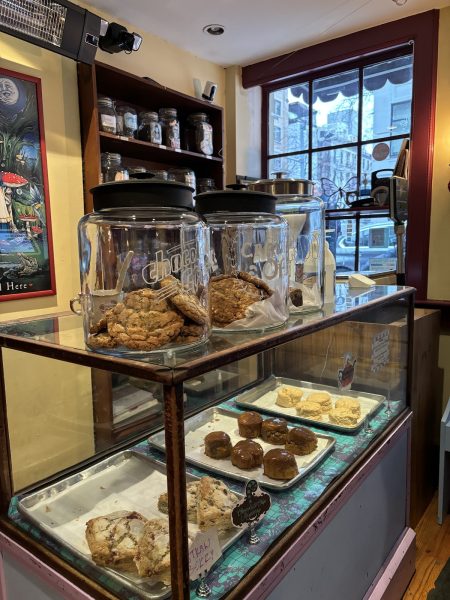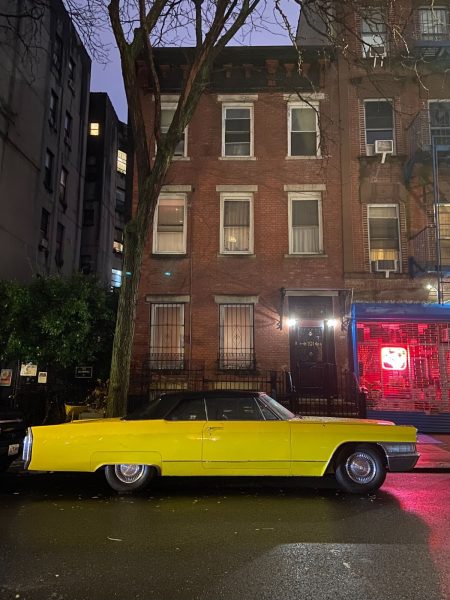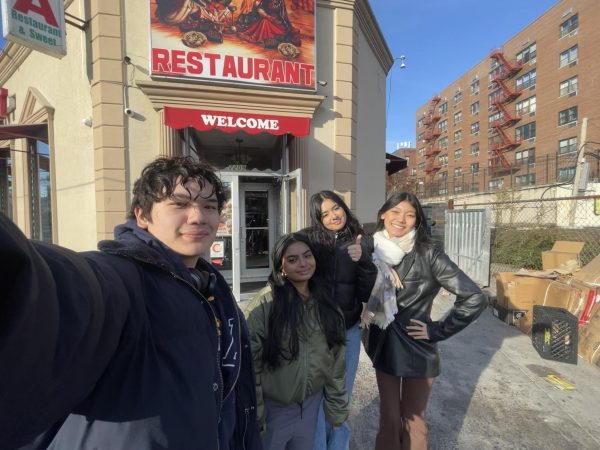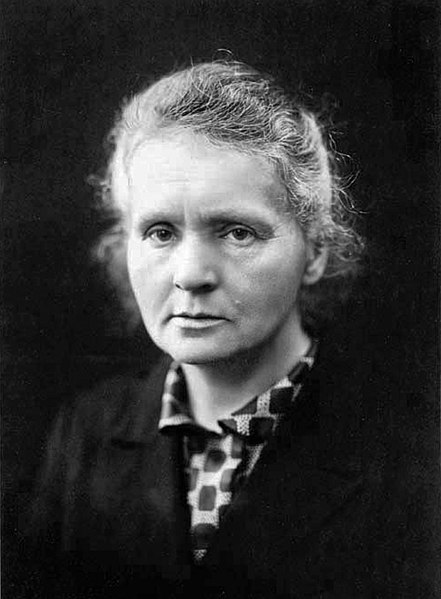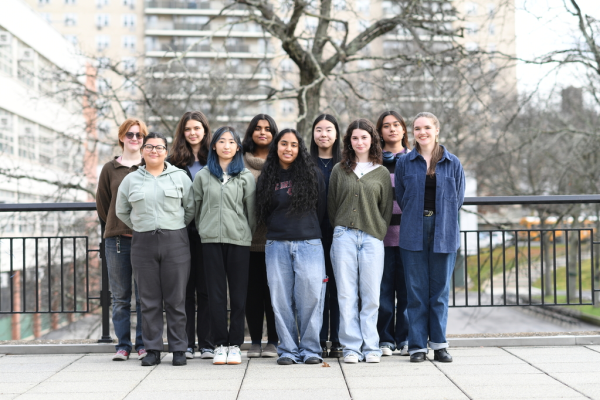Unsung African-Americans Who Have Contributed to our History
Giving Recognition to African-American Innovators
Bronx Science gives recognition to its own famous African-American alumni by honoring Daphne Maxwell Reid, Samuel Delaney, Stokely Carmichael, Neil deGrasse Tyson, Terrence Talbot, and Majora Carter in a special Black History Month poster.
February is a lot of things— the shortest month of the year, teen dating violence awareness month, the month of love, and even national macadamia nut month— but one of the most significant things about February is that it is Black History Month. For many, Black History Month is set aside as a time to honor just a few of the many African-American figures who have contributed to our history. There are, however, many who have not been properly recognized in American history.
Daniel Hale Williams was the founder of Provident Hospital and Training School for Nurses, the first hospital and nurse intern program with a staff made of both black and white doctors and nurses. The hospital gave black nurses an opportunity to practice nursing, as they were usually denied staff positions, and gave African-American citizens a hospital they were not barred from. ‘Dr. Dan,’ as he was called by his patients, is also considered the surgeon behind the first successful open-heart surgery. Williams successfully sutured his patient’s pericardium — the sac-like membrane that surrounds the heart — without x-rays, antibiotics, and with inadequate anesthetics. Operating on the human heart was considered a medical no-man’s-land when Williams performed the surgery in 1893, yet his patient, James Cornish, lived for another twenty years after the surgery.
Another African-American who has had a huge effect on many lives is Annie Turnbo Malone, a chemist and entrepreneur who pioneered the hair-care industry for black women. Born in Metropolis, Illinois, Malone discovered a love for chemistry. She used this newfound passion to create a hair straightener that would not damage the hair of African-American women, which she called “The Great Wonderful Hair Grower.” Hoping to reach a wider audience, she moved to St. Louis in 1902, which had the fourth largest population of African-Americans in the country. She was denied access to most modes of advertisement, which forced to her go door to door in order to sell her product. Nevertheless, she founded both the Poro brand and beauty college in St. Louis, and trained about 75,000 agents to be female entrepreneurs, one of which was Madame C. J. Walker, one of the first American, female, self-made millionaires. Turnbo used the millions she earned from her business to be a prominent philanthropist, and single-handedly supported the The St. Louis Orphans Home, which is now named after her.
Bronx Science has many famous African-American alumni as well. Samuel Delany, Bronx Science Class of 1960, is an African American writer and critic. At the age of eleven, he was told that it was impossible for him to be gay, since “no medical records existed confirming the existence of black homosexuals,” despite his own feelings. Instead of being discouraged by the harsh words, he used this experience as fuel for his literary career. He published his first novel, ‘The Jewels of Aptor,’ at only twenty years old, and flooded the science fiction genre with marvelous books during his lifetime. Delany is considered to be the first African-American science fiction writer, and pushed the boundaries of both the genre and social norms by addressing various issues such as the intersectionality of being both black and gay, and the way we talk about sexuality. His work has earned him several prestigious awards over the years, including the Hugo Award for Best Related Work, the Nebula Award for Best Novel, and the Eaton Award for Lifetime Achievement in Science Fiction.
The first step in creating future innovators is to make sure that we celebrate those who paved the way for us all year, rather than for only a month.
Even now, Bronx Science continues to foster future change-makers. With programs like S!NG, Model UN, and Dynamo Literary Magazine, this school helps students to explore their calling, no matter what field it is in. However, “we should be talking about Black history during the entire school year,” said Gordon Burrell ’19. In our history classes, the story of African-Americans begins with slavery and ends with the Civil Rights Movement. The first step in creating future innovators is to make sure that we celebrate those who paved the way for us all year, rather than for only a month.
Sarane James is a Copy Chief for ‘The Science Survey’ and a Groups Section Reporter for ‘The Observatory.’ As a Copy Chief, Sarane edits the work...

